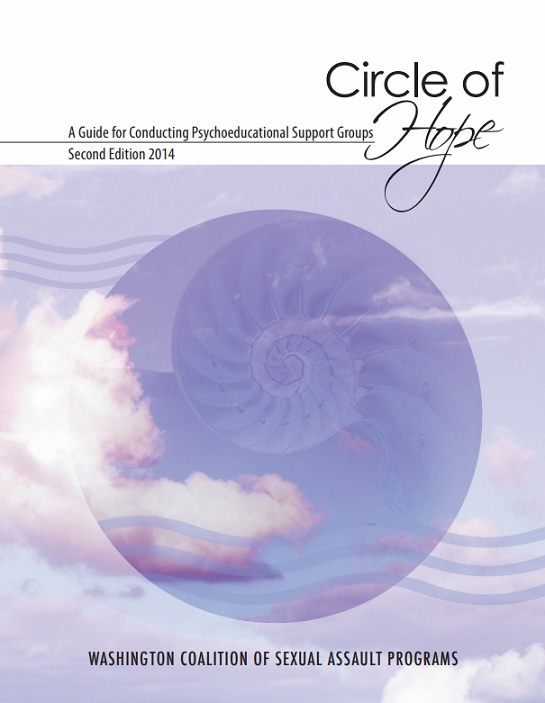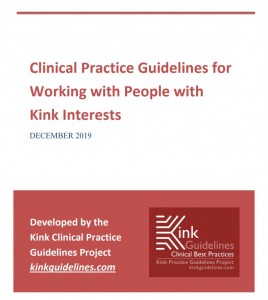Resources Library: Advocates
Start a Search:
Charting the Path Forward from Campus Prevention Network
In the six years since the release of the Dear Colleague Letter, and the four years since the passage of the VAWA amendments to the Clery Act, colleges and universities across the country have devoted unprecedented attention, time, and resources to preventing sexual assault on campus. EverFi’s Campus Prevention Network, in collaboration with It’s On Us, has examined the current state of sexual assault prevention to identify positive national trends in higher education and spotlight areas that schools need to continue to focus their attention. Among the findings, this report highlights:
- Nearly 50% of college presidents have spoken publicly about sexual assault three or more times in the past year; only a quarter of college presidents did not speak about sexual assault publicly in the past year;
- While fewer than a third of campuses (27.9%) reported stable, consistent funding for evaluation efforts of their prevention programming, nearly all campuses are engaging in at least one evaluation effort of their prevention programming despite funding challenges;
- Peer educators are playing an increasingly prominent role in delivering sexual assault prevention programming on campus; schools and colleges need to ensure peer educators receive appropriate supervision and training to fulfill their responsibilities successfully;
- Significant differences in funding and staffing levels for prevention exist across institutions, particularly in relation to school size; increased investment in prevention is necessary for ongoing impact and progress.
Children Exposed to Domestic Violence: Resources for Communities
This reference list provides a compilation of reports, articles, websites and practical information for communities interested in addressing or learning more about the topic of children exposed to domestic violence and trauma-informed practices. Particular focus was placed on best or promising practices.
Circle of Hope: A Guide for Conducting Psychoeducational Support Groups

A particularly successful method for working with survivors of sexual assault and trauma is to bring survivors together in groups. Groups are an effective tool in giving hope and providing support, validation, connection, healing, and empathy. At the core of all sexual assault trauma is disempowerment and disconnection. To assist in recovery, empowerment and connection are key factors. It is amazing to witness the transformation that many survivors make because of these groups—because they realize they aren’t alone, because they realize that people care, because they learn that it wasn’t their fault, and because of the hope that comes through connection and validation. The relationships that members develop may be some of the most positive and supportive in their lives. Because these groups can have such a profound impact on survivors of sexual assault, it is vital that as advocates we possess the skills and knowledge to effectively facilitate groups. Hence, the purpose of this manual: to provide a roadmap of sorts, to navigate through the world of psychoeducational support groups.
From the Washington Coalition of Sexual Assault Program, this manual is considered a basic guide, written with beginner facilitators in mind. It offers practical guidance and recommendations for facilitation and design of psychoeducational support groups. The sources include existing research and literature about groups, the Office of Crime Victims Advocacy (OCVA) support group standards, and the experiences of those who participated in writing this manual. We encourage experienced group facilitators to add their own wisdom and experience to the information presented here as they conduct support groups.
Clinical Practice Guidelines for Working with People with Kink Interests

The lack of training and education about kink sexualities and the stigma attached to these interests have resulted in a lack of culturally competent treatment of this oppressed group. The gap calls for the clinical fields to address this unmet need as part of professional ethics and responsibility. Clinical practice guidelines assist healthcare practitioners by identifying high quality services and desirable professional practices. The Clinical Practice Guidelines for Working with People with Kink interests (hereafter referred to as “Kink Clinical Practice Guidelines”) are intended to outline the knowledge, skills, and attitudes important for providing culturally competent care to the population of people who are involved in kink, both kink-identified patients and those involved in kink who do not adopt that identity. Clinical practice guidelines are recommendations, not mandatory requirements. The Kink Clinical Practice Guidelines are not standards of care, nor should they be used to exclude any healthcare provider from practicing in a particular area. The Kink Clinical Practice Guidelines are proposed to improve the care, and minimize harm to the kink community, an underserved
and vulnerable population.
Developed by the Kink Clinical Practice Guidelines Project, December 2019
Coercing Pregnancy
This article details how some abusers coerce their female partners into pregnancy as a tactic to exert control over their lives. Abusive acts related to this phenomenon include rape, using threatening or manipulative language, and interfering with birth control. The author argues that “[t]o move pregnancy coercion into the broader narrative of intimate partner abuse, women’s experiences with reproductive coercion must be legitimized within our culture and our laws” (pp. 311-312).
Click here for the full article.

